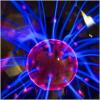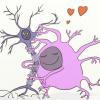If processing=consciousness, then any degree or processing should correlate with a commensurate degree of consciousness, but we don't know this to be the case. On the other hand, if conciousness is emergent and manifests at a critical threshold of processing complexity, than it would be considered a product. What was not produced at lower levels of processing is now produced at higher levels. There must be some order of processing that is involved, as my brain processes innumerable bits of physiological data while in deep sleep, yet there is no consciousness being produced.Second, I think this evolutionary argument is essentially beside the point, because I think it is an error to consider consciousness a trait separate from the processing the brain has do to for survival.
The question then becomes, is this product active or passive? Is it influential or entirely a-causal. Consciousness-as-ephiphenomenon holds that consciounsess is an uninfluential byproduct of processing. Remember, an epiphenomenon is "a secondary effect or byproduct that arises from but does not causally influence a process" (Oxford Dictionary). A good metaphor for an epiphenomeon is the noise an engine makes. The noise is instrinsic to the process of the engine, yet totally unnecessary-i.e., it could function just as well without it. So, if consciousness is truly epiphenomenon, the functioning of our organism would be fine without it like an engine without the concomitant sound.
Is this the case?
It is not unthinkable that consciousness is an epiphenomenon of information processing, though I doubt it (what are we conscious OF but information, after all)? But even an epiphenomenon is non-physical or supernatural. It would still be a collective property of physical information processing in neurons. Really, what else could it be?
Edited by nowayout, 13 February 2015 - 02:57 PM.























































